Tag: Psychology
-
Health
Why be kind? You might live longer.
Take our research-based quiz on biological benefits of being good
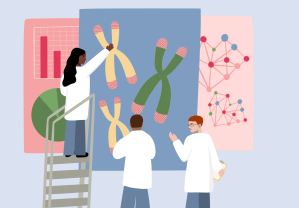
-
Nation & World
Are optimists the realists?
Humanity is doing better than ever yet it often doesn’t seem that way. In podcast, experts make the case for fact-based hope.
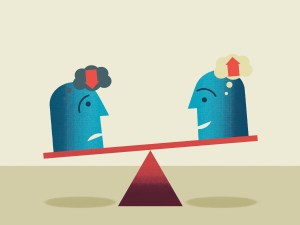
-
Health
How to fight depression? Faster.
Hope flags when medications fail, isolating and endangering patients. Backed by a major grant, 2 Harvard scientists are focused on reducing the distance between diagnosis and recovery.

-
Nation & World
Taking the phones out of school
Experts discuss growing movement to restrict devices in class

-
Health
Suicide among female doctors gets a closer look
Epidemiologist discusses research, shrinking gap between rates of male, female physicians, what can be done

-
Health
Soda is bad for you yet your body wants it. Why?
Psychiatrist explains why we crave junk food — and how to cultivate healthier eating habits

-
Nation & World
Looking at how prejudice is learned, passed
Research suggests power, influence of watching behavior of others

-
Health
Between bright light and a good mood, plenty of sleep
Researchers outline path to lower risk of depression

-
Health
Can we talk?
Study finds that conversation – even online – could be an effective strategy to help prevent cognitive decline and dementia

-
Health
Forgiving what you can’t forget
Wronged and can’t move on? A theologian, a psychologist, and a public health expert discuss why and how to heal.

-
Health
How to untangle ethics of psychedelics for therapeutic care
Experts from law, philosophy, spiritual care discuss issues surrounding research, safer use, kicking off University initiative
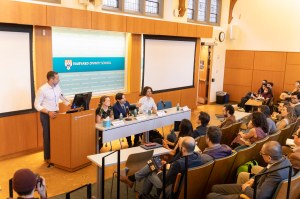
-
Nation & World
How dating sites automate racism
Sociologist’s new book finds algorithms that suggest partners often reflect stereotypes, biases

-
Science & Tech
Getting ahead of dyslexia
Harvard lab’s research suggests at-risk kids can be identified before they ever struggle in school

-
Nation & World
Why are we so divided? Zero-sum thinking is part of it.
Researchers examine who embraces mindset that one’s gain is another’s loss, and how that affects our politics — in sometimes surprising ways

-
Health
How the already anxious avoided global spike in COVID anxiety
Psychological tools learned by those in treatment proved protective in high-stress event, study finds
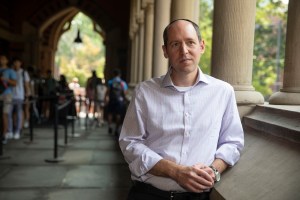
-
Science & Tech
Glimpse into how mind may affect healing
Study finds bruising fades faster in patients who are led to believe more time has passed than actually has

-
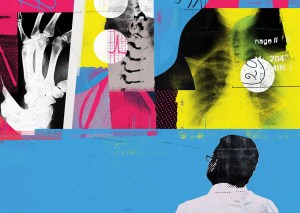
-
Science & Tech
Why do some kids learn to talk earlier than others?
Global study by new faculty Elika Bergelson finds three key predictors of language development. They may surprise you.

-
Health
Harvard researchers see genetic link between anorexia, early rising
Eating disorder may also play a role in insomnia

-
Health
How being stigmatized can harm health
Professor of Psychology Mark L. Hatzenbuehler’s course, “Stigma, Discrimination, and Health,” examines the wide-ranging problem that touches on sexuality, body weight, immigration, and poverty.
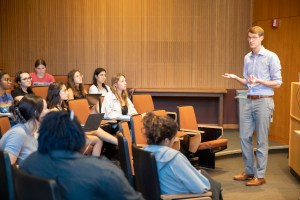
-
Nation
Does right to bear arms override restraining orders against domestic abusers?
Harvard’s Caroline Light, an expert on history of firearms restrictions examines upcoming landmark Supreme Court case.

-
Health
Think twice before saying ‘cult’
Survey shows intense support for ex-president in face of indictments, but common claim among MAGA critics falls short of scientific rigor.
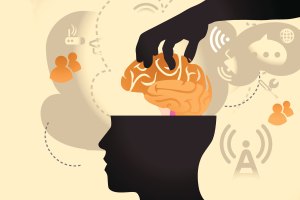
-
Work & Economy
You bought an electric car. Why did your carbon footprint grow?
It may sound counterintuitive but you probably don’t drive enough, says grad’s research on the effectiveness of government incentives.

-
Science & Tech
Making algorithm used in AI more human-like
Researchers used fMRI to test ideas about complex decision-making.
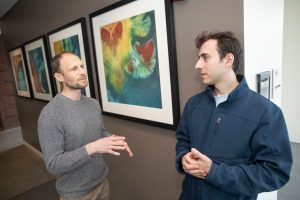
-
Science & Tech
5 reasons you crack under pressure
“Managing Conflict Mindfully” author outlines why even experts get in their own way sometimes, and how to stop.
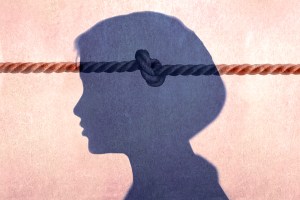
-
Science & Tech
‘Moral breakdown is a fake problem’
In new study, experimental psychologist takes on the stubborn perception of declining morality.

-
Health
Feeling anxious? Stuck? Problem is psychological avoidance
In her new book, professor of psychiatry Luana Marques says that too many mistake symptoms for underlying problem

-
Science & Tech
Tracking rapidly changing patterns of suicidal thought
Smartphones enabled researchers to capture shifts multiple times a day, gathering data that could help guide more effective prevention.
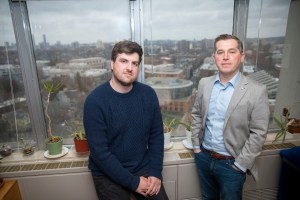
-
Science & Tech
Which hand has the treat? Preschoolers get that, but more options confound.
Researchers uncover pattern in developmental psychology of 3-year-olds: a struggle to weigh competing options.




